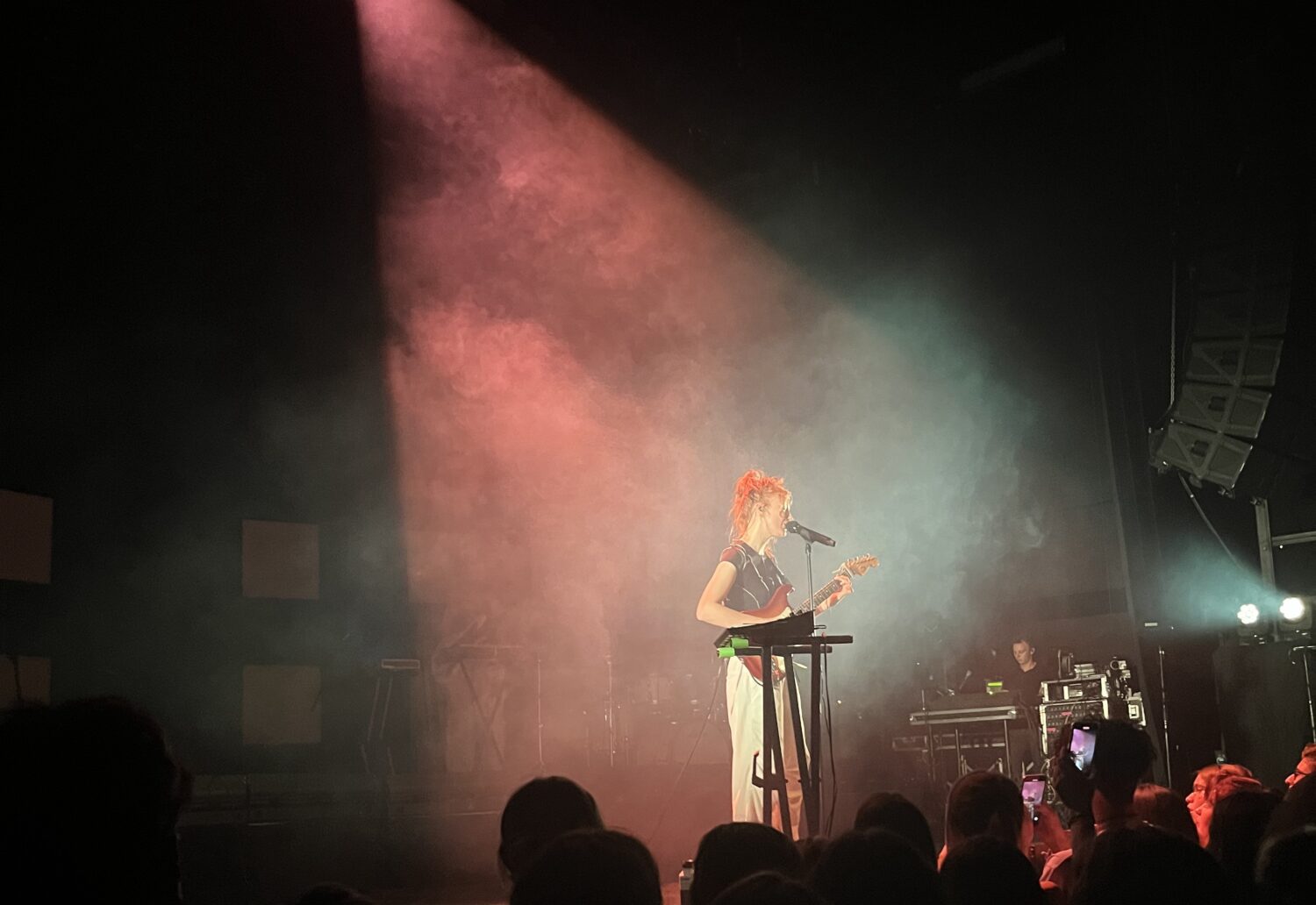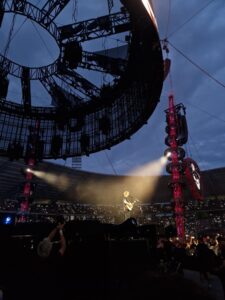
Jan Pauly: ‘I’m convinced that technology can make the live music experience better’
Technology rapidly evolves in every industry, and the music industry is no exception. Last month we saw U2 give the first performance in a new music venue, the Sphere and Taylor Swift is trying to reach even more fans by making a movie of her Eras Tour. Is it time to say goodbye to the old-fashioned, overcrowed live concerts?
On the 29th of September 2023, U2 was the first band to play in the Sphere, in Las Vegas. The Sphere is the new hype in the concert industry. The biggest dome in the world has an enormous number of LED-lights on the inside and outside. The quality of sound has improved dramatically with more then 150,000 speakers for perfect sound at every place. The Sphere is never seen in a lot of aspects, in terms of technology, as well as price.
In an interview with the Rolling Stone Magazine, U2 guitarist, The Edge, said that they hoped that this is a huge step forwards for the redefinition of a concert. In my view, it worked, when opening social media platforms, you can’t get around video or photos of the Sphere. Is this the start of a new chapter in the concert world?
Technology as a COVID-19 solution
COVID-19 gave a boost to virtual music according to Jan Pauly, project manager Virtual Music Experiences by Howest DAE Research and PXL-Music Research. ‘Artists couldn’t perform anymore, but during those two hard years they still wanted to reach their fans. Because technology was evolving fast, this could vary from a living room concert to an immersive experience on a gaming platform such as Roblox or Fortnite.’
‘Nowadays people expect more than they used to and that’s only right’
– Jan Pauly, project manager Visual Music Experience
Never the less, after COVID-19, we rushed back to crammed concert halls to watch our favourite artists. In Pauly’s view, we have to make the shift in our thinking to seeing that the online experience is extra, not a replacement. As an example, Pauly thinks that this is an opportunity for artists to make themselves known by foreign public. They don’t have to go on an expensive tour in that country. The virtual experience is lower in price and an ideal way to find a foreign audience.
Visual Music Experience
The goal of the Virtual Music Experience research led by Pauly is clear. ‘We study how we can make support artists in different aspects of their career.’ career easier. From recording, releasing, streaming, live performance until promo, we think about how technology can be an extra toolkit for the artist and how we can strengthen that experience.’
This can be a costly affair, but for every solution the research teams comes up with, there is a high-end and low-budget solution. They are not working for one player in the field, but they want to inspire the whole music sector, by making a wide variety of options available. Pauly gives a clear example of this: ‘We made 3D scans of a concert hall, one with a special laser camera and one with an iPhone and a AI-application. Afterwards, we can research what works best in which context and how you can work things out with a limited budget.’
Goodbye to live music?
Amber Laenen (22) goes to live concerts at least twice a month. She isn’t a great fan of the immersive experience at concerts. For her, it detracts from the live music experience. She likes the intimacy of just having the performer there without too much going on. ‘It would feel like they’re trying to do too much, maybe to keep up with the trends, but I like to go to the back-to-basics at performances, where you get a better feel of the music.’
However Laenen does feel that things are going to change in the music industry. ‘A lot is going on, especially because AI is up and coming.’ But visiting a technology-driven concert is something she would only do once for the experience. ‘I think it’s just a trend right now because it’s new and not done yet. When it becomes mainstream, people are still going to prefer actual live concerts without all the crazy AI elements, according to me.’

Luckily for Laenen, Pauly also thinks that live music will never disappear. He is convinced that technology can make the live music experience better. ‘We have to see live music and virtual music by augmented reality or virtual reality as two different things. They will make a whole different world with other target audiences to create experiences. Those two can perfectly live together without competition.’
‘I think that, in an easy way, with technology, you can give access to better visuals or create visuals. For instance, when you use a game environment, you can easily make landscapes which you can add to the existing live performance. This way the experience will be even more accessible and afterwards you can relive it,’ explains Pauly.
Experience economy
In recent years, the entertainment industry has shifted towards becoming an “experience economy”. Pauly explains that this extra layer you lay on top of the entertainment is becoming more important for people. ‘Traditional concert halls have to move into that experience direction. They can do that by working with bigger, curved LED-screens for a more immersive feeling. All of this doesn’t have to be big or expensive. Nowadays people just expect more than they used to and that’s only right with the shift to an experience economy.’
Text: Lotte van den Hout
Photo: © Lotte van den Hout



